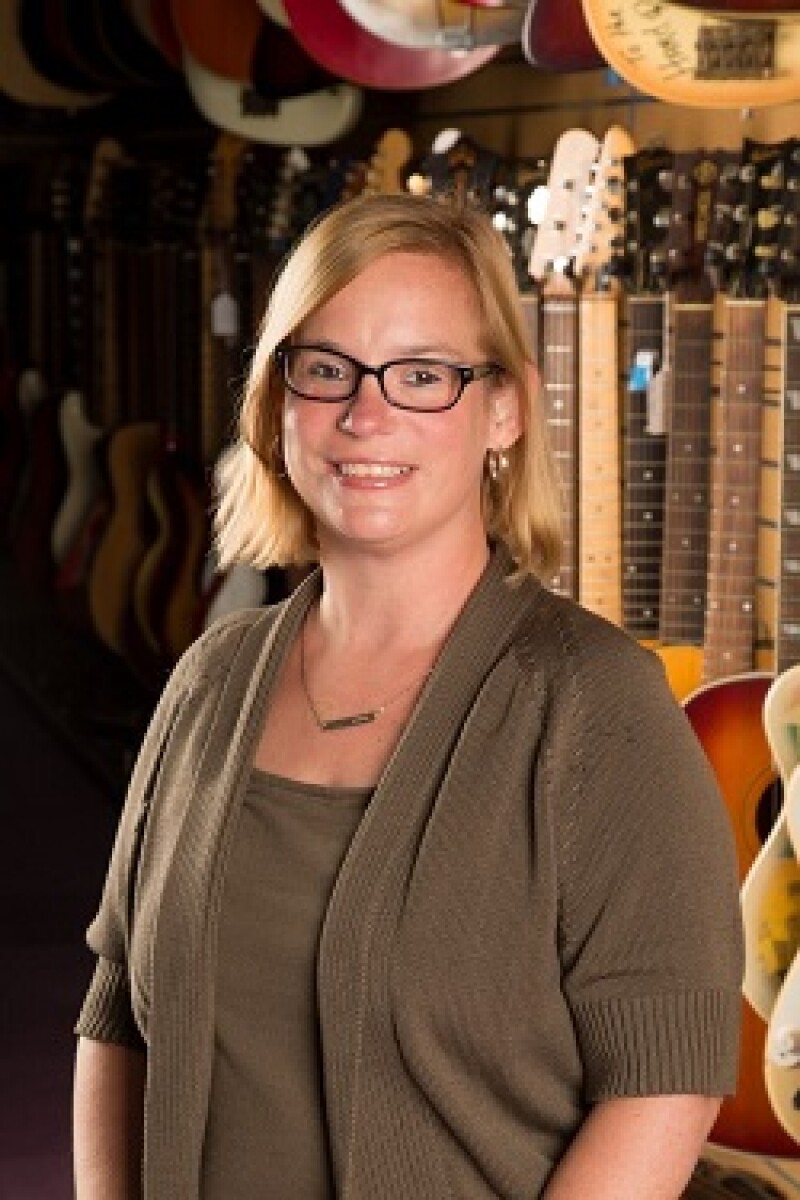
When you’re as famous and iconic a brand as Hard Rock is, dealing with the threat of counterfeiting is a constant challenge. The copiers’ targets include the classic T-shirts, the distinctive lapel pins and even the restaurant itself.
The challenge is evolving. For example, Rebecca Roby, senior director of business affairs at Hard Rock International, notes that, in the past couple of years, some more sophisticated designs have been coming out of Malaysia copying city-specific T-shirts that feature detailed artwork.
Combating this is a big task. Fortunately, while being an iconic brand brings unwanted copying, it also brings loyal fans. A lot of the company’s counterfeit tracking comes from customers, tipping off the company about street vendors, for example.
“They often send emails either to our generic email address for IP enforcement or customer care, so a lot of our fans are a great resource,” says Roby. “Also, our franchisees give us a lot of information in their locations around the globe. We also work with a third-party vendor to monitor online infringements in various key retail sites or initial sales where people are just printing their own versions directly.”
Unfair competition in Germany
It is not only counterfeit clothing Roby must combat, but sometimes entire counterfeit cafés and hotels. The company has a long-running trademark and unfair competition dispute with an unauthorized Hard Rock Cafe in Heidelberg, Germany, which has been open since 1978. The latest development in that case came last year when the regional court of Karlsruhe decided the use of the Hard Rock Cafe logo for operation of a restaurant violated the country’s unfair completion law, despite that Cafe operating in the area before Hard Rock entered Germany.
“That one is sort of an exception in terms of the history there and the length that case has been going on,” says Roby. “We have others that pop up now and then, whether it be full-on copying of the brand and the logo versus maybe changing one word slightly or switching the words around. We have actually seen more lately in the context of our hotels brand.” Locations in Malaysia, Vietnam and India have been a problem recently.
Roby estimates that 80% of her time is brand focused with the other 20% spent on HR and employee-related matters. Of the 80%, about 30%-40% is trademark prosecution/opposition strategy and domain name strategy work, and the rest is contractual support related to the brand, such as license agreements and reviewing merchandise for IP approval.
The domain name challenge
Hard Rock has about 3,700 active trademarks. Its domain name size is roughly double that. “We are working on culling that,” says Roby of the domains. “With the constant launching of new gTLDs—when is it going to stop?—we are trying to revisit our domain strategy and cull some extensions that never really took off, or that we thought would be defensive but are very far down on the defensive radar.”
Roby says Hard Rock looks at each new domain name with a cost conscious mindset. “The pricing of some of the new ones, especially during sunrise periods, has just been so ridiculous that we have been passing and waiting for general availability, if at all,” she says. “Every now and then there have been ones in a price range during sunrise that we would be interested. But the rule of thumb is that we were setting a threshold of $500 total or less, otherwise we are not that interested in any of them.”
Hard Rock took up some of the core domains to start, such as .menu and .hotel. Roby says some of the city ones may be of interest where the company has a presence or is about to have a presence. “But if we register any new gTLDs, it is still a defensive mechanism and approach,” she says. “Our marketing strategy isn’t to migrate any of our existing pages.”
When asked about what changes she would like to see in the trademark system, Roby says: “It would be nice if a uniform approach was chosen and subscribed to globally,” as opposed to the company having to weigh the benefits of first-to-file countries versus first-to-use countries.
She would also like to see more consistent global treatment and effectiveness in battling trademark counterfeiting, such as what type of remedies or enforcement mechanisms are available.
“We get frustrated when in one country we are told that raids/seizures are not a viable option, or we won’t ever be able to get them to tell us the manufacturer or cough up that evidence,” she explains. “Or the fees for pursuing such matters are not worth the time. The penalties are not harsh enough to deter the counterfeiter from doing it again once we go away. We have had some good results in Paraguay, Malaysia, Vietnam, Thailand, and some others over the years. But efforts elsewhere have been frustrating—while we get results, seizures made, it never seems to stop the problem or cause action higher up the chain to manufacturers, and so on.”
She continues: “We seem to just continue to pour money into raids and seizures in some countries but the problem never dries up. Then in other jurisdictions, our efforts have not been effective at all. So I guess my wish would be for all countries to take trademark counterfeiting seriously and adopt procedures and regulations that lead to effective results, in a timely manner, and in a cost effective way for the brand owner.”









